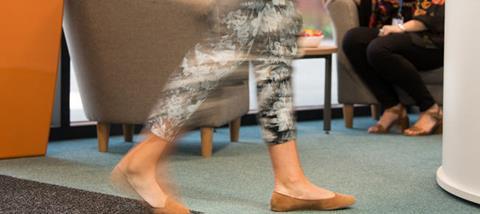
“To my mother, that perpetrator was God's representative on earth.”
Those were the words of a victim and survivor of child sexual abuse in a religious setting. They were speaking to the Truth Project, which enables victims and survivors to share their experiences of child sexual abuse without being questioned, judged or challenged. It’s also vital in gathering as much information as possible about child sexual abuse, so that we can better protect children now and in the future.
Our team is currently analysing the accounts shared with the Truth Project, beginning with those who were sexually abused in the context of religious institutions. Our report covers religions with a significant presence in England and Wales including Islam, Judaism the Anglican and Catholic churches, plus other Christian denominations such as the Baptists and Methodists.
The report found that shame and embarrassment often stopped victims and survivors speaking out. Two thirds (68 percent) of those who were sexually abused in religious settings did not report the abuse at the time, compared to 54 percent in other institutional settings.
“Eventually, one night I cried myself to sleep, the pillow was wet with the tears and I believe my father may have seen it,” said one participant. “I wasn’t pressured to go again but nothing was discussed as to what was up with me, why I was so distraught.”
More than 60 percent of participants reported fondling, with perpetrators appearing to favour non-penetrative abuse. They described the abuse as progressively escalating, often over an extended period of time.
We also found that the power, authority and reverence bestowed upon religious institutions and individuals meant that their conduct was not questioned. The perpetrators often had an official religious title, such as priest, vicar, imam or elder. It’s clear the influence they had over their communities provided more opportunities for abuse - and more barriers to reporting it.
One participant said: “We lived in a village of 250 people. If anything had been said about this wonderful vicar, it wouldn't have been him who'd left. It would have been us who'd had to leave.”
Participants explained that the desire of the religious institution to protect its own reputation or that of the perpetrator at all costs meant they were often disbelieved and discredited after reporting the abuse.
“I think they care more about their reputation, how the church comes across, the community,” said one survivor.
One fifth of those who spoke to the Truth Project revealed they had lost their faith as a result of the abuse, with damaging consequences. The religion which had provided the foundation for their beliefs, morals and daily lives had left them feeling alone and helpless.
Looking back at their childhoods, some participants described how religious institutions’ acted to “cover up” the abuse. One survivor was frustrated that “nobody asked any questions”, while another said: “You just don’t say anything against religious leaders”.
Dr Sophia King is principal researcher at the Independent Inquiry into Child Sexual Abuse
Victims and survivors of child sexual abuse who would like to share an experience and put forward recommendations for change can get in touch with the Inquiry's Truth Project. Visit truthproject.org.uk or email share@iicsa.org.uk. See the Inquiry’s website for more information about Truth Project analysis and the research programme.





























